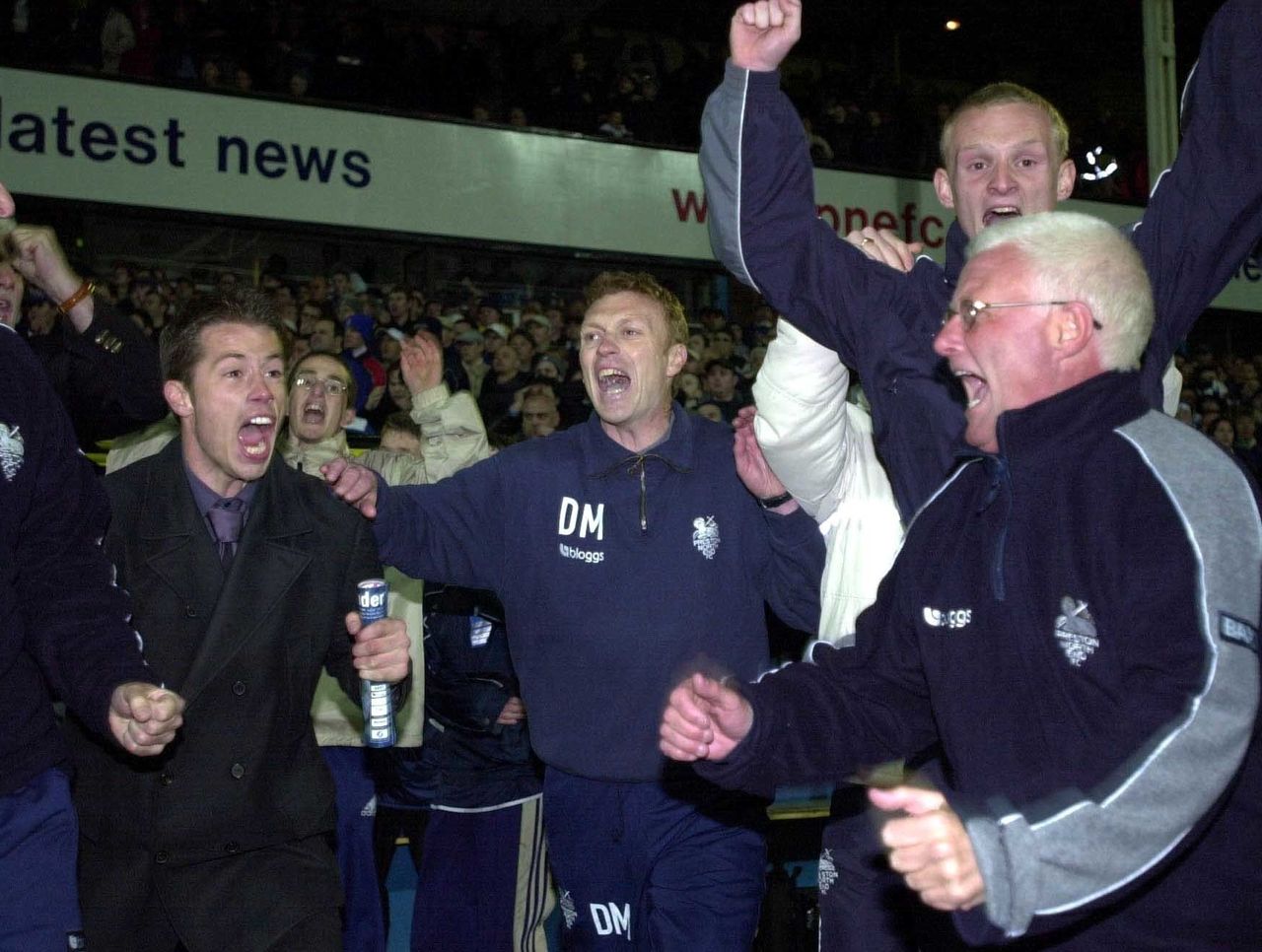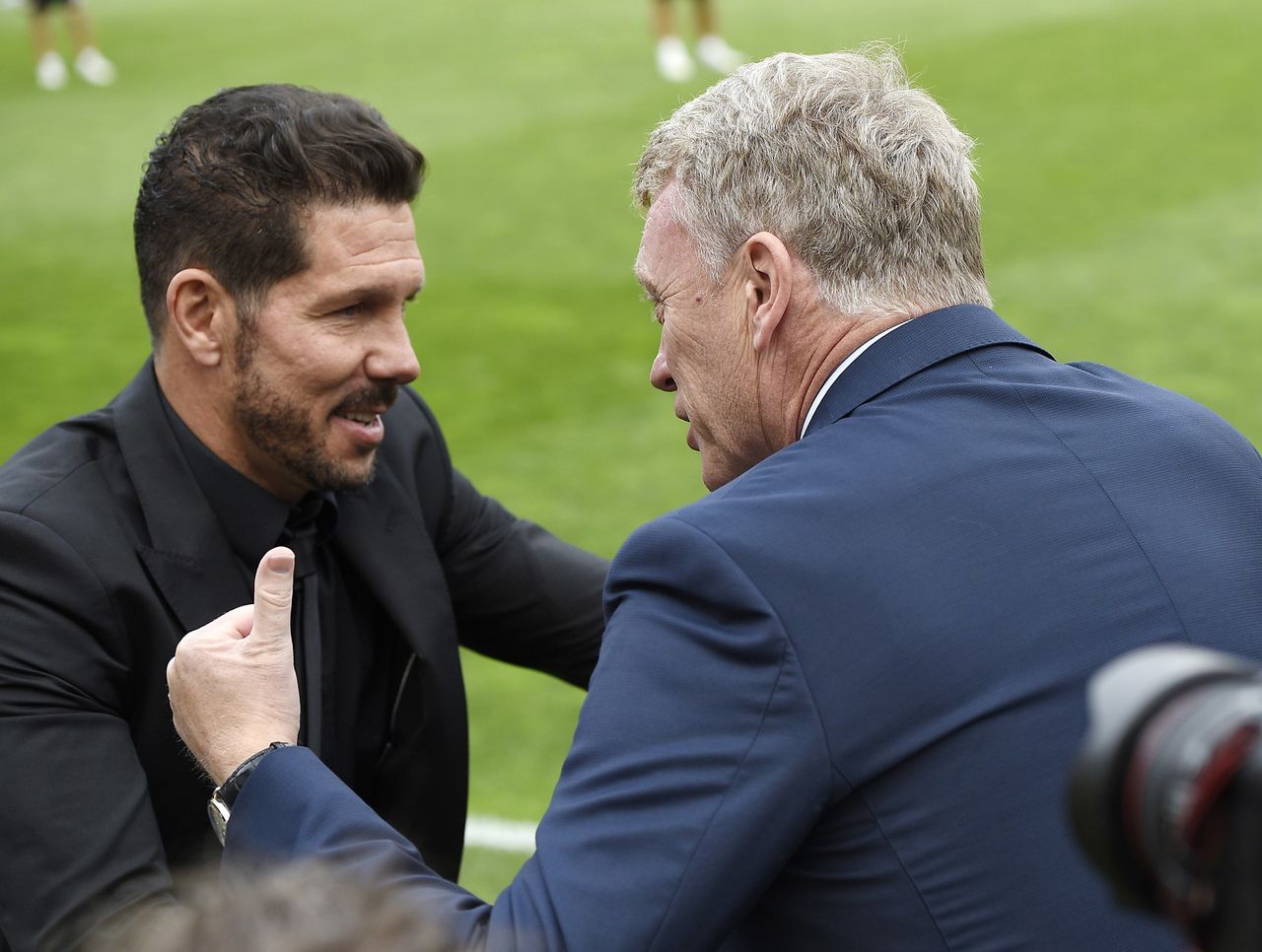Why is antiquated Moyes still considered for Premier League jobs?
Just over a year ago, West Ham United condemned Sunderland to its worst start to a Premier League season. Now, the Irons hierarchy is prepared to hire the beleaguered man in the away-team dugout.
David Moyes, whose steely blue eyes have been reduced to sorrowful, teary pools by the stress of management, is set to be appointed as the new West Ham boss. It's an installation which reflects both the shortsightedness of the London Stadium boardroom, and Premier League football as a whole.
A common complaint aired by British pundits - especially out-of-work coaches - is that foreign managers are preferred for vacancies. The grievance suits Brexit-era Britain. Jobs are, in fact, going to plenty of homegrown coaches, albeit ones that are called David Moyes and Sam Allardyce, with smatterings of Steve Bruce, Alan Pardew, and Tony Pulis.
7 of last 13 PL managerial appointments have been Brits aged 50-70. Moyes and Allardyce next. There's your barrier to young British coaches.
— Daniel Storey (@danielstorey85) November 5, 2017
There is a damaging jobs-for-the-boys culture in Britain as the same people are hired again and again. Players are assessed in scouting missions across the globe, and sometimes even stalked to gather information on their personalities. For managers, there often isn't even a glance over the fence into the Football League. Moyes is hastily given another contract, and talented managers in the English professional pyramid and elsewhere in the United Kingdom - Chris Wilder, Paul Cook, Tommy Wright, and Paul Hurst to name a few - continue to work wonders; tackling scant resources with innovative methods or simply hard, passionate graft.
Related: 4 overlooked managers who should be considered for Premier League gigs
Not only is West Ham's hiring process questionable - not particularly surprising for a club that signed Jonathan Calleri, Simone Zaza, and Gokhan Tore in preparation for the 2016-17 season - its short-term or nostalgic memory when it comes to Moyes is mind-boggling.
Moyes' decline
His early years with Preston North End were superb. The historic club was at risk of dropping into the fourth tier when he took over in 1998, but he soon consolidated its place in the then-named Division Two and, by the time he left for Everton in March 2002, he had led the Lilywhites to the brink of the Premier League.

He endeared himself to Everton fans in his first press conference - declaring it "the people's club" - and went on to steer the Toffees to 10 top-half finishes in 12 seasons. He ditched a transfer policy that regularly ushered spent forces to the club, and instead entrusted bargain buys such as Tim Cahill, Mikel Arteta, and Seamus Coleman, and academy graduates like Wayne Rooney and Jack Rodwell, with first-team minutes. Everton was rejuvenated.
What a difference being in one of the most high-pressured gigs in world football can make. Encumbered with an ageing squad, "The Chosen One" was flummoxed as Sir Alex Ferguson's much-anticipated successor at Manchester United. This was how his deterioration began. At United, under the weight of expectation, he was the fall guy.
Jamie Jackson's book "A Season in the Red" remembered the final hours of Moyes' tenure:
They are sinking and everyone is laughing. Not to his face, but he knows they are. A lot of people have waited a long, long time for this. The decline and fall of the great Manchester United Empire after nigh on three decades of Ferguson's rule. Finally it has happened. Not gradually, this is a collapse. A sickening freefall, a public disrobing. It is David Moyes's fault, they say. All his fault. The players don't believe in him any more, if they ever did. Neither do the fans. And the media, well, they have no loyalty, but who does? This is football in the twenty-first century.
The Scot was crushed, and sought solace in the Basque Country. But he was exhausted and untrusting after his treatment at United's helm, and didn't get around to learning Spanish. It was instead left to his Real Sociedad players to improve their English. It was the wrong way round, and Moyes cut a solitary, beaten figure much of the time, except for when he was accompanied on long driving expeditions by fellow Scot and assistant Billy McKinlay. One local radio station described him as "an island," according to the Guardian's Sid Lowe. He lasted 364 days in San Sebastian.

That term would've sounded the death knell for most managerial careers, but when Allardyce departed Sunderland to assume the England post, a poorly run club was in need of an overseer. Moyes was handed the reins, and tasked with keeping the Black Cats in England's top tier.
After two league matches, his diagnosis wasn't good when speaking to Sky Sports' Jefferson Lake: "I think it will be (a relegation battle), I don't think you can hide the facts, that will be the case, yes. People will be flat because they are hoping that something is going to dramatically change - it can't dramatically change, it can't."
And rather pluck under-the-radar stars such as Arteta, Cahill, and Coleman for his squad, his signings included Paddy McNair, Darron Gibson, Bryan Oviedo, Donald Love, and Steven Pienaar. They were men he'd managed in previous roles, and demonstrated how insular his football world had become. His constant negativity was of a man who had fallen out of love with the game.
His seemingly impending appointment at West Ham has to be his last chance in high-level football management. There is little to indicate that he will foster team spirit and improve performances when his flame was extinguished some time ago.
West Ham could be doomed.
(Photos courtesy: Getty Images)